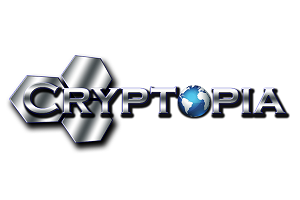I believe we are going to see a natural evolution towards P2P exchanges in the near future. Initially online exchanges were needed to interface between the economies of the real world and Bitcoin. However, with the recent explosion in demand for Bitcoin and other alt coins like Ethereum, we're quickly discovering how expensive it is to trade through centralized online exchanges.
Unlike Bitcoin itself, these exchanges are run by companies. This means that they have staff, they oversee and manage all the interactions between their users, they serve as arbitrators in cases of disputes, and they collect fees for doing all that. Seeing how that produces a whole number of disadvantages, and goes against the autonomous culture that is so deeply rooted in the cyrpto world, some members of the Bitcoin and Ethereum communities have set out to disrupt the market by producing a new solution - decentralized peer-to-peer exchanges, that are run not by people, but by software.

Here's how Peer-to-Peer works.
First, let’s sum up how a "regular" cryptocurrency exchange works. People looking to sell Bitcoins specify the amount and the price they’d like to sell them at. All those requests, known as orders, are placed in a common ledger, called the order book.
When another person wants to buy Bitcoins, they either look for a satisfactory offer in the order book or, if none can be found, create their own buy order, specifying the terms of the deal as they like. Whenever possible, the exchange matches buy and sell orders by price and processes the trades.
Now, Bitcoin transactions can take a long time - from five to 10 minutes at the least, and up to several hours. Fiat money transfers usually take even longer; in some cases, international payments may take several days to complete. In order to speed up the process of trading, the exchange serves as a trusted intermediary: it settles all trades immediately, even though the actual transactions might have not yet been finished.
In order to remove the need for a third party, P2P exchanges operate in a different way.
The exchange software is used to automatically connect buyers and sellers with each other, based on the terms they prefer. Instead of matching orders in the order book, they match the people behind those orders. That is, whenever a matching buy and sell orders are found, the exchange software does not immediately process the trade, but instead, it connects the buyer with the seller, allowing them to conduct the deal without any intermediaries.
Still, third parties may be involved as arbitrators in case of possible disputes, but no human involvement from the exchange is required by default.
Here, just like with Bitcoin itself, the software alone is perfectly capable of matching traders with each other in a decentralized manner.
Don't get me wrong, we're still in the early stages here , so there are some downsides to adopting p2p today, and here are a few of them.
Most flaws of decentralized exchanges are caused simply by the fact that they are a relatively new kind of service. For example, Bitsquare, arguably one of the oldest of such exchanges, has been around for just three years and most of that was the development period.
As such, these exchanges have to deal with a number of problems. For example, most of them are currently aimed at small, specific audiences of crypto enthusiasts and haven’t had the need to cater to newcomers - because of that, they tend to be less intuitive to use.
For the same reasons - small audience and early stage of existence, decentralized exchanges usually have much lower trading volumes than the regular ones.
Longer trade times, on the other hand, are likely a disadvantage that will take a while to fix, if ever. They are caused by the manner in which the trades are conducted - with traders having to wait for actual Bitcoin and fiat transactions to complete before a trade is concluded.
This last issue, coupled with the lower liquidity, means that P2P exchanges are not at all in demand with, for example, professional traders, who need fast transactions to make timely deals. In their current state, these exchanges can only be useful to people interested in the specific advantages they offer - the increased resilience, privacy, security and freedom of payments.
I'm currently testing a number of these P2P platforms and would like to show some love for a couple of them.
Cryptopia:
Omega One:
SuperNet (ReBranding to BarterDEX):
Nxt Foundation: https://www.cryptopia.co.nz/ https://omega.one/ https://www.supernet.org/en https://nxt.org/




Interesting blog. Bit over my head but nice work! Upvote #thealliance
Thanks for putting in the effort to write this! #thealliance
Totally agree, why I got in on the NVO ICO last month.
The SAFE network is cool. I'm a maidSafe holder. Still a work in process, but I'm excited for them. https://maidsafe.net/
Hi! I am a robot. I just upvoted you! I found similar content that readers might be interested in:
https://cointelegraph.com/explained/p2p-cryptocurrency-exchanges-explained
Submersion is the word I guess. Everyday I find new things being done with blockchain. Nice post.